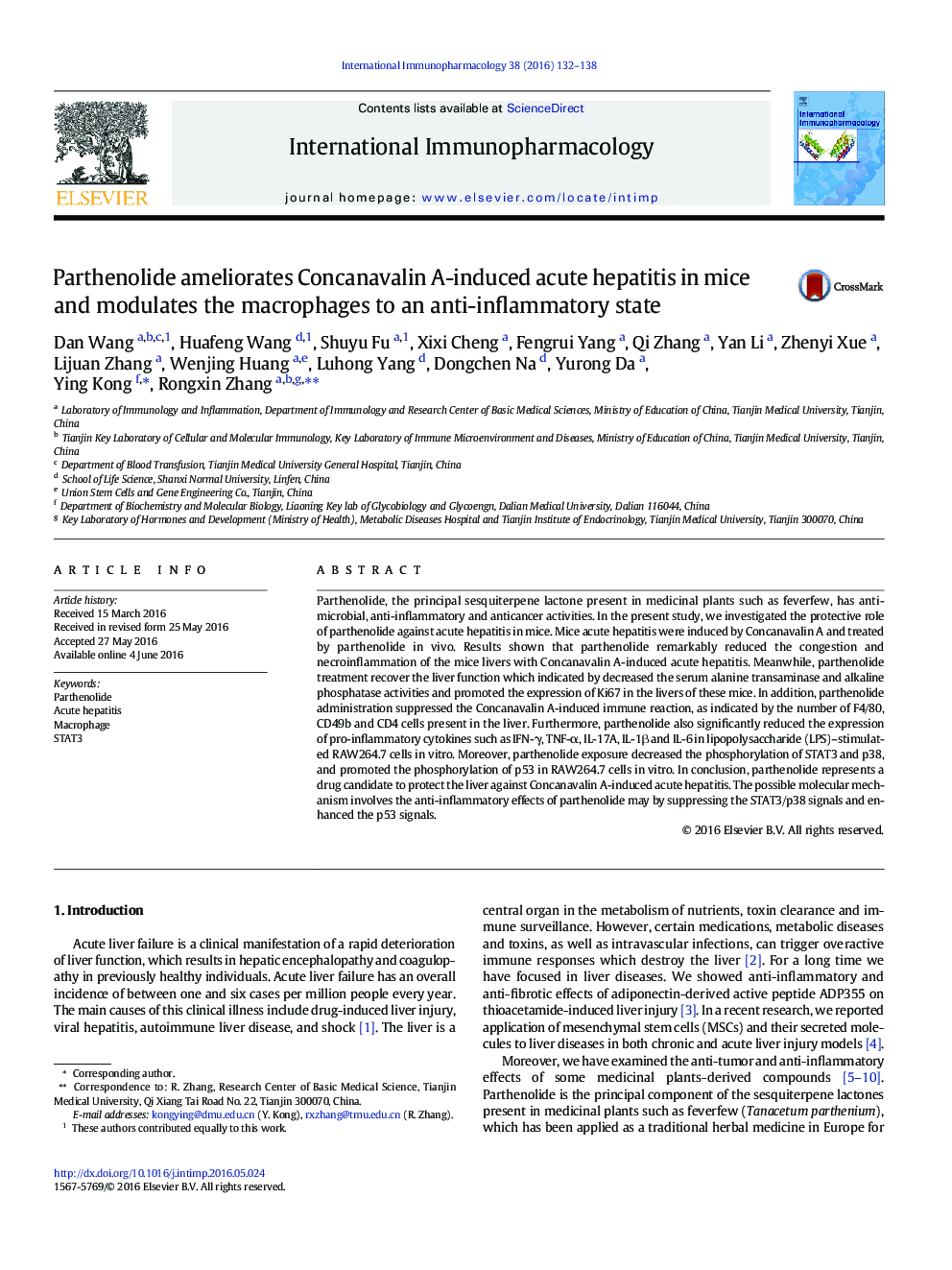| کد مقاله | کد نشریه | سال انتشار | مقاله انگلیسی | نسخه تمام متن |
|---|---|---|---|---|
| 5831746 | 1559752 | 2016 | 7 صفحه PDF | دانلود رایگان |

- Parthenolide inhibited Concanavalin A-induced acute hepatitis in mice.
- Parthenolide reduced the transcription of pro-inflammatory cytokines in RAW264.7 cells in vitro.
- The possible molecular mechanism may be involved in the suppression the STAT3/p38 signals and enhanced the p53 signals.
- Parthenolide represents a candidate agent to protect the liver against Concanavalin A-induced acute hepatitis.
Parthenolide, the principal sesquiterpene lactone present in medicinal plants such as feverfew, has anti-microbial, anti-inflammatory and anticancer activities. In the present study, we investigated the protective role of parthenolide against acute hepatitis in mice. Mice acute hepatitis were induced by Concanavalin A and treated by parthenolide in vivo. Results shown that parthenolide remarkably reduced the congestion and necroinflammation of the mice livers with Concanavalin A-induced acute hepatitis. Meanwhile, parthenolide treatment recover the liver function which indicated by decreased the serum alanine transaminase and alkaline phosphatase activities and promoted the expression of Ki67 in the livers of these mice. In addition, parthenolide administration suppressed the Concanavalin A-induced immune reaction, as indicated by the number of F4/80, CD49b and CD4 cells present in the liver. Furthermore, parthenolide also significantly reduced the expression of pro-inflammatory cytokines such as IFN-γ, TNF-α, IL-17A, IL-1β and IL-6 in lipopolysaccharide (LPS)-stimulated RAW264.7 cells in vitro. Moreover, parthenolide exposure decreased the phosphorylation of STAT3 and p38, and promoted the phosphorylation of p53 in RAW264.7 cells in vitro. In conclusion, parthenolide represents a drug candidate to protect the liver against Concanavalin A-induced acute hepatitis. The possible molecular mechanism involves the anti-inflammatory effects of parthenolide may by suppressing the STAT3/p38 signals and enhanced the p53 signals.
Journal: International Immunopharmacology - Volume 38, September 2016, Pages 132-138